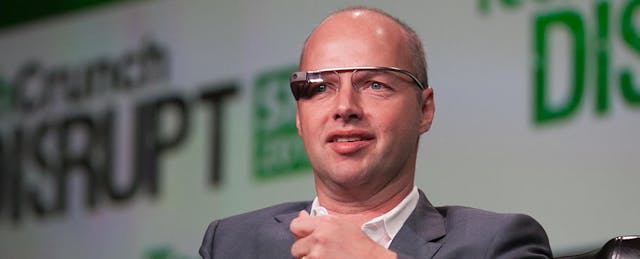He did it.
Sebastian Thrun has had a breathtaking impact on the education technology landscape: Just about five years ago, his Stanford-based online class in artificial intelligence became a MOOC looked at round the world. Today, Thrun said his company, Udacity, has raised $105 million in a Series D round, a deal that values the company at the unicorn level of $1 billion.
German-based media conglomerate, Bertelsmann, led the round and Kay Krafft, CEO Bertelsmann Education Group, will join the Udacity board. Other new investors included: Scotland’s Baillie Gifford, Emerson Collective and Google Ventures. Existing investors Andreessen Horowitz, Charles River Ventures, and Drive Capital also took part. The round effectively doubles the capital Udacity had previously raised, totalling $160 million. (Also worth noting: Bertelsmann is muscling up in education. In September, Bertelsmann became the biggest investor in Hot Chalk, which is building online degree programs.)
Udacity is part of a broader trend of post-secondary education programs that aim squarely at helping people develop market-ready skills. Even the federal government is helping fire up such work, through an experimental program to let students with subsidized government loans attend non-traditional programs such as coding bootcamps.
Still, that wasn't quite what Thrun had in mind four years ago when he and a colleague, Peter Norvig, started teaching a course about artificial intelligence online. In late 2011, Thrun and Norvig added a few more significant digits to the number of students taking online courses when they attracted 160,000 people to their AI course. Thrun built on that momentum swiftly, starting up Udacity in early 2012, with the goal of bringing world-class education to everyone, everywhere.
That's not quite how the story played out, however.
After raising $5 million to get started, Udacity began creating courses. Tens of thousands of people signed up for MOOCs; few finished. "I'd aspired to give people a profound education—to teach them something substantial," Thrun told a reporter from Fast Company. "But the data was at odds with this idea."
He tried creating the most compelling class that he could--and still few completed the classes. Even more rare were students who could demonstrate they had learned from the classes. "We were on the front pages of newspapers and magazines, and at the same time, I was realizing, we don't educate people as others wished, or as I wished. We have a lousy product," Thrun told Fast Company. "It was a painful moment."
Udacity switched gears. It found students who needed to succeed at a class--namely incoming college freshman who had to pass algebra to move on to better things. In conjunction with California Governor Jerry Brown, Udacity created an algebra class for incoming students at San Jose State University. But during the summer of 2013, that program, too, flopped. Although many more students completed the course (than the MOOCs), barely 25% passed the class.
The company pivoted: In partnership with Georgia Institute of Technology and AT&T, Udacity began building a program of "Nanodegrees" around skill sets that AT&T wanted to see in job applicants. They began offering the programs in autumn 2014.
Since then 11,000 students have enrolled in Udacity's Nanodegree programs; 1,000 have graduated. In a blog post, Udacity president and COO, Vish Makhijani, wrote that students are getting jobs (although he did not offer a precise number). He also noted that Udacity "hit profitability" earlier this year.
Autumns are good for Thrun. A decade ago, while a new professor at Stanford University, Thrun led the development of a robot car, "Stanley," that became the first autonomous vehicle to win the DARPA Grand Challenge race in October 2005. Now he's done a thing that few people would have guessed--built an education technology company valued at $1 billion.
What's next, Sebastian?
"Office hours" with Peter Norvig (left) and Sebastian Thrun (right) when they ran their first MOOC on artificial intelligence in late 2011.


